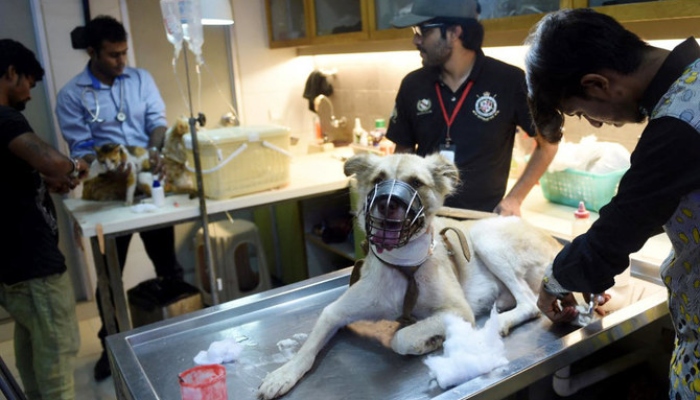Pakistan joins hands with PETA to eliminate animal cruelty
PETA, Salman Sufi discuss reforms that would shift how animals are treated in Pakistan
July 26, 2022

- PETA, Salman Sufi discuss reforms that would shift how animals are treated in Pakistan.
- Meeting discusses implementation of education programme for children, adults understand care for animals.
- Discussions include helping universities switch to using superior [...] non-animal simulation models for veterinary education.
ISLAMABAD: People for the Ethical Treatment of Animals' (PETA) President Ingrid Newkirk and the head of Prime Minister Shehbaz Sharif’s Strategic Reforms Unit Salman Sufi have discussed potential groundbreaking reforms that would shift how animals are treated in the country.
The discussions included helping universities throughout Pakistan switch to using superior, ethical, economical, non-animal simulation models for veterinary education in order to replace the cruel kidnapping and killing of dogs and other animals for training.
The meeting discussed the implementation of an education programme to help children and adults better understand how to share the world with and care for animals.
It was also discussed how to assist with repatriation efforts for non-native species of animals who have been cruelly trafficked into Pakistan to be kept as household pets or whose skins or other body parts would be used as decorations.
The meeting followed PETA’s recent calls for Pakistani officials to ban horrific veterinary training exercises on abducted dogs. Shortly afterwards, Sufi announced PM Shehbaz's landmark measures prohibiting the use of live animals in such training in Islamabad and surrounding regions.
Alongside Newkirk were other PETA staff that attended the meeting including Vice President of International Laboratory Methods Shalin Gala and Chief of Science Advancement and Outreach Dr Katherine Roe.
“From trafficked wildlife to kidnapped dogs in veterinary laboratories, animals across Pakistan will benefit as a result of this historic meeting,” said Gala.
“PETA is pleased to be working with a visionary leader like Prime Minister Shehbaz Sharif and the head of his reforms unit, Salman Sufi, and we look forward to a long and productive collaboration that will benefit animals, advance human health, and boost Pakistan’s status on the world stage.”
PETA will next send information to Sufi for the premier's consideration in implementing other reforms including replacing the use of animals in medical training, classroom dissection exercises, and biomedical research with superior, state-of-the-art methods as well as setting up a national non-animal research methods database and working to implement PETA’s Research Modernisation Deal.











